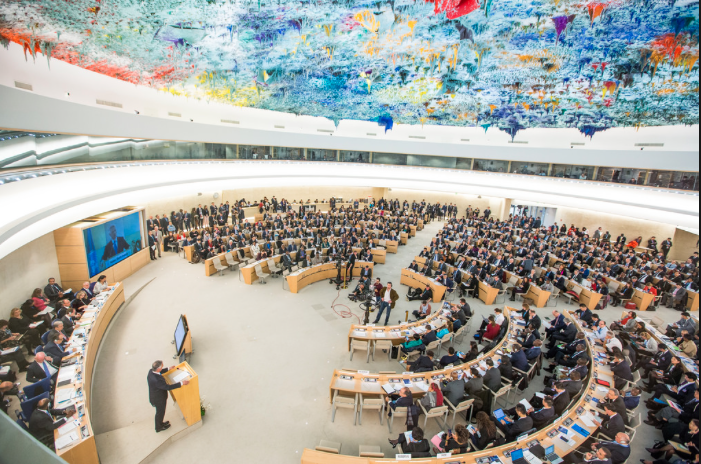 A recent joint submission by the Center for Economic and Social Rights and partners to the UN Human Rights Council Advisory Committee, in response to a call for input for a study on the ways in which development contributes to the enjoyment of all human rights by all, expressed concern over the fact that the study suggests that development always contributes to human rights realization. Read the full submission here.
A recent joint submission by the Center for Economic and Social Rights and partners to the UN Human Rights Council Advisory Committee, in response to a call for input for a study on the ways in which development contributes to the enjoyment of all human rights by all, expressed concern over the fact that the study suggests that development always contributes to human rights realization. Read the full submission here.The submission by CESR and partners ATD Fourth World, The Global Initiative for Economic, Social and Cultural Rights and Franciscans International makes a case that although human rights enjoyment should be the ultimate goal of development, it is not an inevitable byproduct.
"Not all development is human rights-aligned, and governments need to make active efforts to ground their development objectives in human rights," reads the document. The submission explains that there are many examples of development initiatives or programs that have led directly to the violation of human rights and that there are economically developed countries where human rights are far from realized.
The submission emphasizes that States' human rights obligations are applicable to their development activities and therefore when identifying policy best practices around national sustainable development agendas, the Committee and States should be guided by human rights obligations and principles, as set out in existing human rights treaties, such as the UDHR and the ICESCR. Such sustainable development measures must support and enable States' ability to respect, protect and fulfill economic, social and cultural rights, as well as civil and political rights.
Participation by those whose rights are affected by policies, in particular poor and local communities, is crucial, with participatory budgeting initiatives on promising and increasingly widespread "good practice" cited. Human rights impact assessments (HRIAs) are also recommended as a means to assist decision-makers in assessing and addressing any potential adverse effects of development programs. The contributors underline that the realization of human rights will require the mobilization of resources through means such as progressive tax reforms and curbing illicit financial flows, in order to tackle poverty and inequalities.
The document provides examples of development programs that threaten or violate human rights. For example, infrastructure projects, such as mines, dams and power plants are commonly cited by governments, the private sector and international financial institutions as invaluable contributions to development but have in many cases resulted in forced evictions, catastrophic water pollution and unsafe working conditions. Further violations, such as threats and reprisals, torture and incarceration have often been used as tools to silence dissent about the human rights costs of development projects, according to the submission.
The submission closes with recommendations for the Advisory Committee’s report, and notes that “Aligning human rights standards and development objectives is essential to achieve people-centered and sustainable development, and to overcome poverty and extreme inequality.”
Read the full submission here.